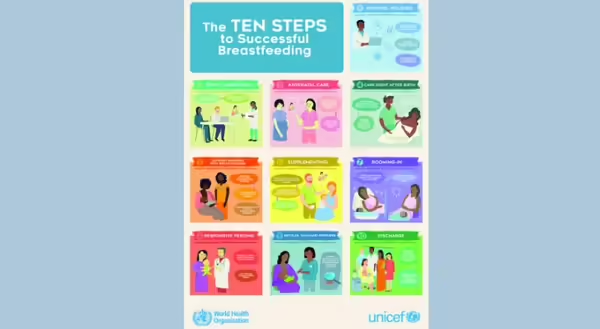
We all know breastfeeding is best for babies. It's like a superpower shield, boosting their immune systems and protecting them from illnesses. For families in underserved communities, these benefits are even more crucial. But here's the catch: breastfeeding isn't always easy, especially for these moms.
Imagine facing health disparities and limited access to healthcare and then navigating the world of breastfeeding. It's tough. Breastfeeding can be physically demanding, and things like latch difficulties or low milk supply can feel overwhelming. For moms in underserved communities, these challenges can be magnified by a lack of support and resources.
Here's a closer look at why breastfeeding is so important for these families:
- Immunity Superhero: Breast milk is packed with antibodies that protect babies from infections like ear infections, respiratory illnesses, and diarrhea. These illnesses are more common in underserved communities due to factors like crowded living conditions, making breast milk an even more vital line of defense.
- Fighting Chronic Conditions: Growing up in an underserved community often means facing higher risks of health issues. Breastfeeding can help tip the scales, lowering the chances of developing obesity, type 2 diabetes, and even cancer.
- Easing Financial Strain: Let's face it, raising a child is expensive. The formula adds up quickly, putting a strain on already tight budgets. Breastfeeding is a cost-effective way to provide the best nutrition for babies, easing the financial burden on families.
But the emotional toll is real.
The pressure to breastfeed, coupled with the lack of support, can be incredibly stressful for moms. It's like trying to solve a puzzle without all the pieces. This can lead to anxiety, feelings of inadequacy, and even increase the risk of postpartum depression. And for women who may have experienced trauma related to breastfeeding or childbirth, the emotional hurdles can feel insurmountable.
We need to do better – and we are!
We can't ignore the struggles these moms face. That's why the Integrated Health Disparities program from Extension is on a mission to support breastfeeding in underserved communities. We're working hard to develop educational resources that enhance and promote breastfeeding for all moms. Our signature program, Nurturing Foundations, tackles this critical issue head-on, along with other vital maternal mental health topics. Stay tuned for more news about Nurturing Foundations and our commitment to empowering families through breastfeeding support!
Resources about Breastfeeding:
About the Author
Andrea S. Fanta is a statewide mental health extension specialist. As part of the Integrated Health Disparities program, she evaluates, develops, and implements programming to increase social justice in mental health. She has a master's degree in occupational therapy, and she is currently a doctoral fellow in the Department of Human Development and Family Studies at the University of Illinois at Urbana-Champaign. Andrea has vast experience working with families and actively collaborates with national and local coalitions to strengthen our communities.
The Integrated Health Disparities program tackles health issues through an integrated physical, mental, and community health lens, providing programs and resources to address health inequities.